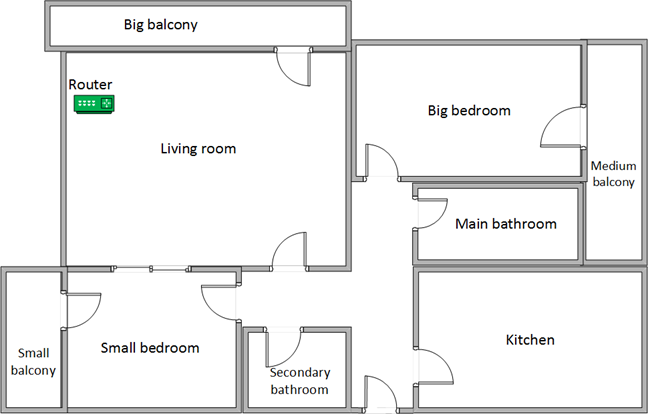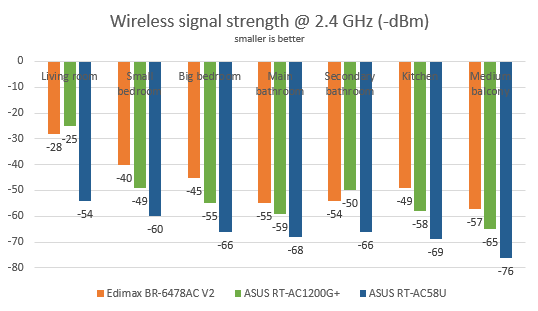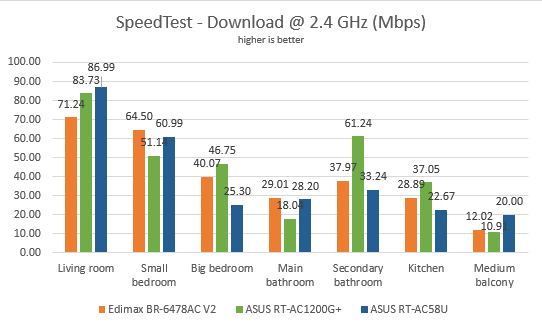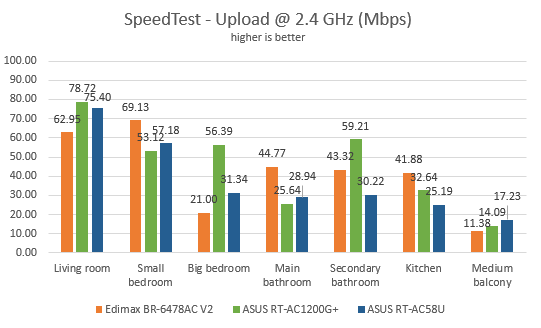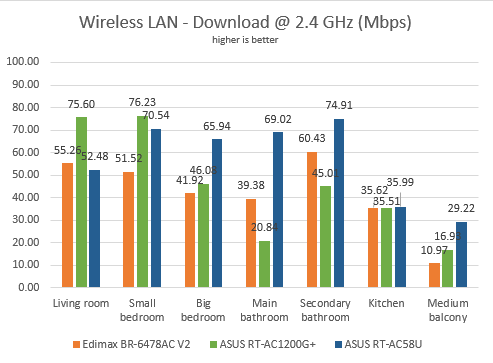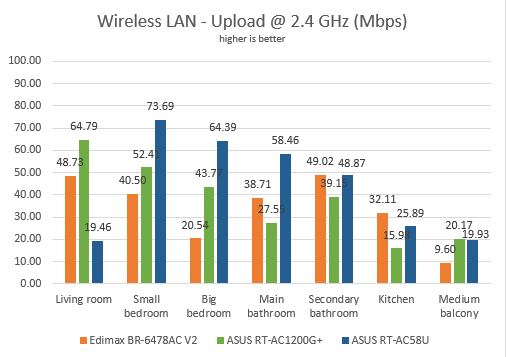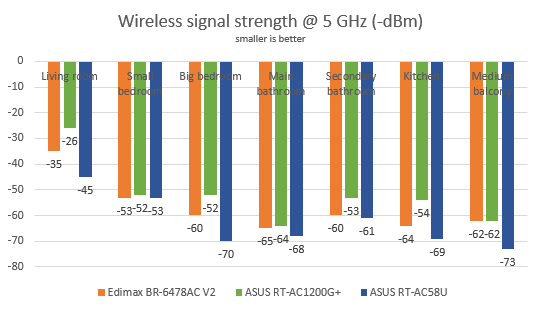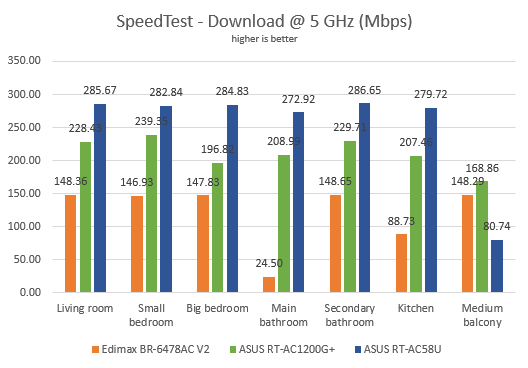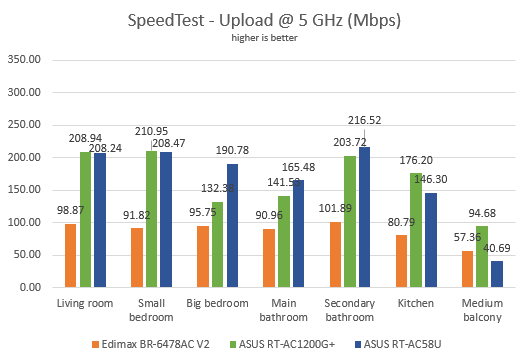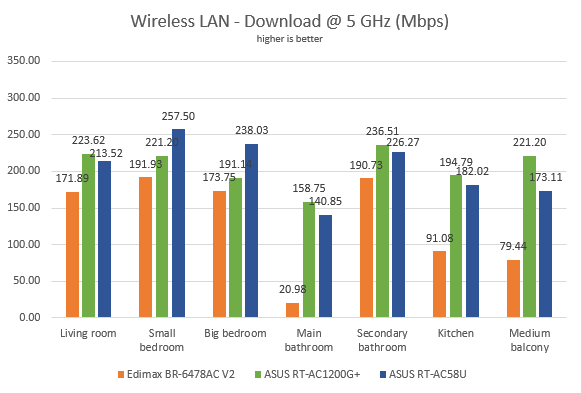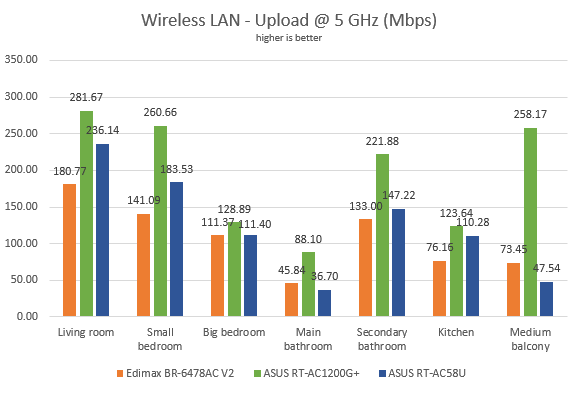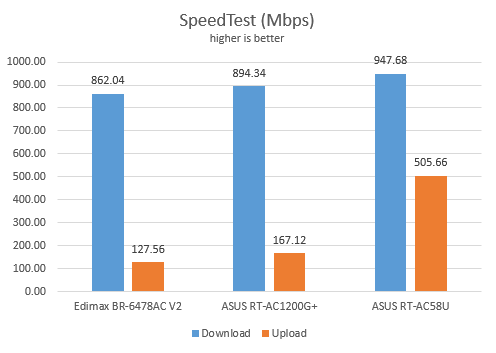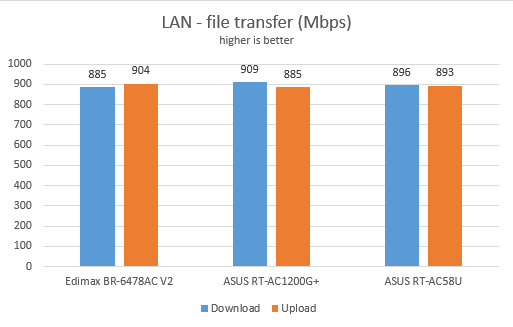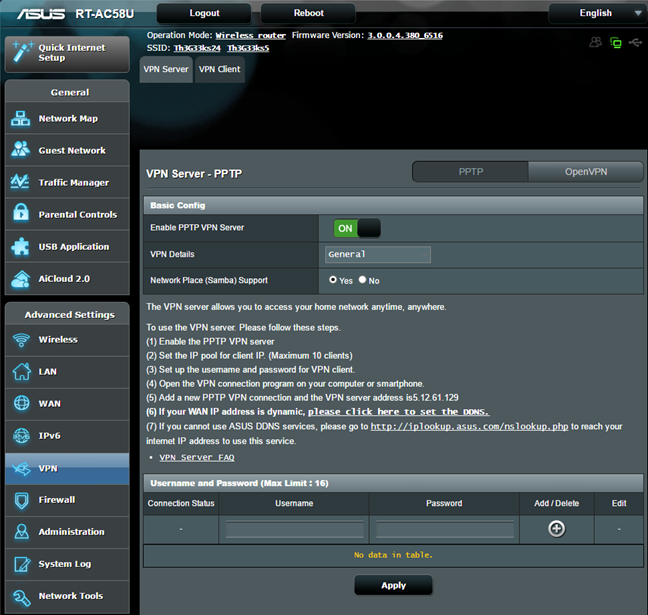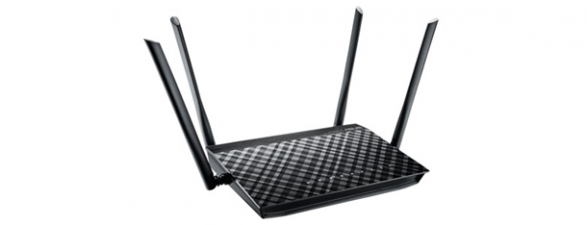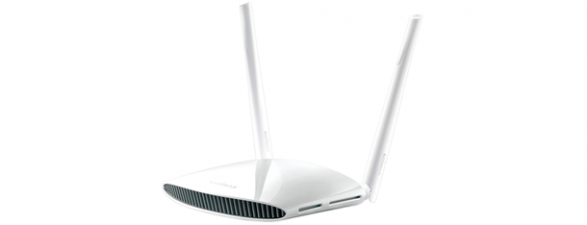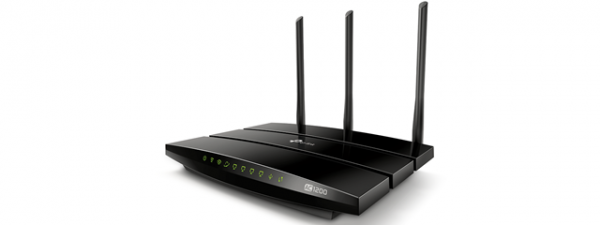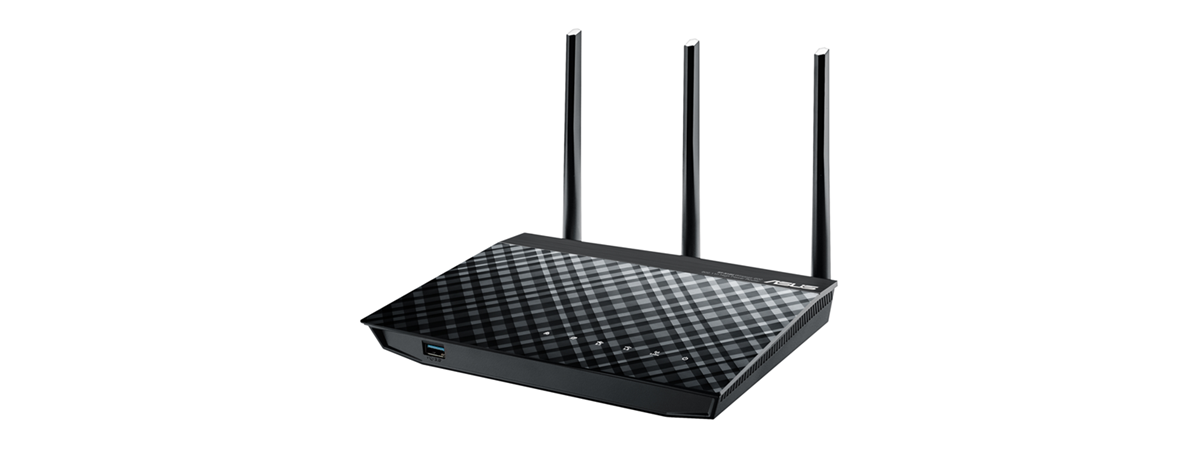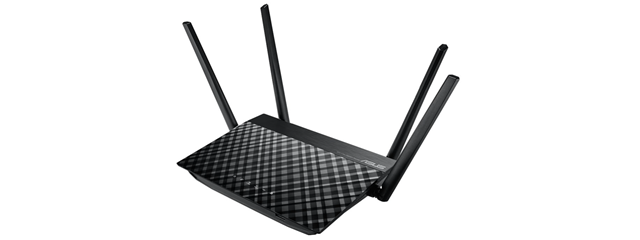
Wireless network performance
Before sharing the details of our measurements, let's take a look at the apartment that was used in our testing and how it is set up. You can see that the router is placed in the living room. With most wireless routers, the signal strength is not that great in rooms like the Kitchen and the Medium balcony.
Our testing was done using a fast 1 Gigabit Internet connection that's capable of uploads on the internet of up to 500 Mbps. We used a Microsoft Surface Pro 3 for all our measurements and several software tools. To get a better perspective of the performance offered by ASUS RT-AC58U, we compared it to its slightly more affordable brother - ASUS RT-AC1200G+ and with another competing router with a similar total maximum bandwidth: Edimax BR-6478AC V2.
We started by evaluating the 2.4 GHz wireless network and measured the signal strength offered in each room, using a tool named inSSIDer. As you can see in the graph below, the signal strength offered by ASUS RT-AC58U is not that great. However, this doesn't mean that it is a slow wireless router.
Then, we used SpeedTest to measure how fast the Internet connection offered by this router is. In the download test, ASUS RT-AC58U has had mixed performance. In some rooms it was faster than the other routers we compared it to, while in other rooms it wasn't.
In the upload test, again, the performance offered by ASUS RT-AC58U was mixed.
Continuing our measurements on the 2.4 GHz wireless network, we used LAN Speed Test Lite to measure downloads and uploads when transferring a 350MB file between two computers connected to the network. When measuring the download speed, ASUS RT-AC58U performed best in the rooms that were further away from the router and worse in the rooms closest to it.
In the upload test, ASUS RT-AC58U performed worse in the room where it was placed (which we found very odd), as well as in the furthest room from its position. In all the other rooms, it offered very good performance, beating other routers.
The 2.4 GHz wireless network offered by ASUS RT-AC58U can be unstable, suffering from variability and performance drops. The hardware inside this router is quite powerful and able to offer fast and stable wireless connections but its firmware has some bugs which negatively impact your experience.
Next, we analyzed the performance offered by the 5GHz wireless network. First, we looked at the evolution of the signal strength, from room to room. As you can see below, the signal strength offered by ASUS RT-AC58U is not that great. However, this doesn't mean that it is a slow wireless router.
We moved to SpeedTest, to measure the speed of the Internet connection on the 5GHz wireless network. The download speed offered by ASUS RT-AC58U was excellent in all rooms, except one.
The same story was true when we looked at the upload speed.
Lastly, we used LAN Speed Test Lite to measure downloads and uploads when transferring a 350MB file between two computers connected to the network. Again, ASUS RT-AC58U was an excellent performer, when we measured the download speed.
When we measured the upload speed, ASUS RT-AC58U performed very well but it was beaten by its more affordable brother, ASUS RT-AC1200G+.
ASUS RT-AC58U is a great performer when it comes to the 5GHz wireless network. It managed to offer very fast downloads and uploads. Its new quad-core processor has definitely shown its strength in our measurements.
Wired network performance
In order to test the quality of the wired Ethernet connection, we used a desktop PC, equipped with an Intel Core i5 4460 processor, running at 3.20GHz, 16GB of RAM and a very fast Samsung 850 Pro 512GB SSD and a Microsoft Surface Pro 3 with an Intel Core i5-4300U processor, running at 1.9 GHz, 8 GB of RAM and a fast 256 GB SSD drive from Samsung.
We started by measuring the download and upload speeds using SpeedTest. As you can see below, ASUS RT-AC58U managed to offer downloads which are very close to 1 Gbps. Also, it achieved the maximum upload speed possible on our internet connection.
For the last measurement, we transferred an 883 MB file between the same two computers connected to the network, both of which were using an Ethernet cable. Again, ASUS RT-AC58U was a very good performer, with transfers close to 900 Mbps.
ASUS RT-AC58U delivers solid 1 Gbps Ethernet connections, as promised in its specifications.
Extra features
ASUS RT-AC58U offers a few interesting extra features:
- Guest Network - you can set up to six guest wireless networks that provide internet access but restrict access to your network. You can enable up to three 2.4GHz guest networks and up to three 5GHz guest networks.
- Traffic Manager Quality of Service (QoS) - a basic QoS service that you can use to set speed limits for individual devices on your network.
- Parental Controls - A basic parental controls module that you can use to set a schedule for the devices that are used by your children. You cannot use it to filter adult content or any other type of content that is inappropriate for children.
- USB Applications - designed to work with all kinds of devices that you can connect to the router using USB: external hard disks, printers and 3G or 4G dongles or modems.
- VPN Server - you can set the router to work as a VPN server and you can also use it to turn your network-connected devices into VPN-enabled clients via the OpenVPN and PPTP protocols, without additional VPN software.
- Network Tools - for analyzing the network and identifying what's wrong. They are useful when you need to troubleshoot problems.
- ASUS AiCloud 2.0 - a mobile app that keeps you connected to your data wherever and whenever you have an internet connection. With it, you can access the folders shared in your home network from your Android or iOS smartphone or via a personalized URL.
- ASUS Router - a mobile app for iOS and Android, which allows you to monitor and manage your wireless router from your smartphone.
ASUS RT-AC58U offers quite a few extra tools, for a router in its price-range. Some of them are really useful, like the possibility of turning it into a VPN server, while others, like the basic QoS service that's included, not so much.
Pros and cons
There are quite a few pros for the ASUS RT-AC58U wireless router:
- It features the new quad-core Qualcomm IPQ4018 processor, that's used in very few routers so far
- It offers very good speeds on the 5 GHz wireless frequency
- The firmware is very configurable and easy to use
- ASUS offers great multi-lingual support
- The Help documentation is well made and easily accessible
- ASUS RT-AC58U has many useful extra features, including the possibility to make it run as a VPN server
There are also a few downsides to consider:
- The firmware, in its initial version, has some bugs that negatively affect the stability of the wireless network. They should be fixed in future firmware versions
- Applying changes to wireless settings can take a long time and require a restart of your router
- The signal strength is not that great, making it unsuitable for large apartments or houses
- This router cannot be mounted on walls
Verdict
The ASUS RT-AC58U AC1300 dual-band router has a lot of potential. It features a modern quad-core Qualcomm IPQ4018 processor - the industry's first single-chip Wi-Fi system-on-chip (SoC) to bring Wave-2 802.11ac features. This chip shows its strength when using the 5GHz wireless network, where you see excellent download and upload speeds. Unfortunately, the firmware has a few bugs which lower the quality of the experience you get. They manifest themselves mainly on the 2.4 GHz wireless network and, hopefully, they will be fixed in future firmware updates.


 19.04.2017
19.04.2017 